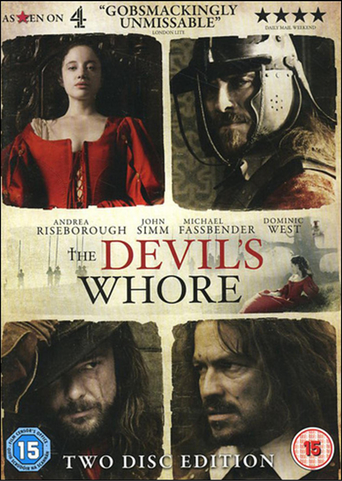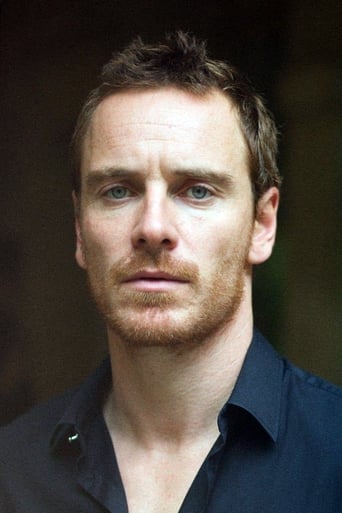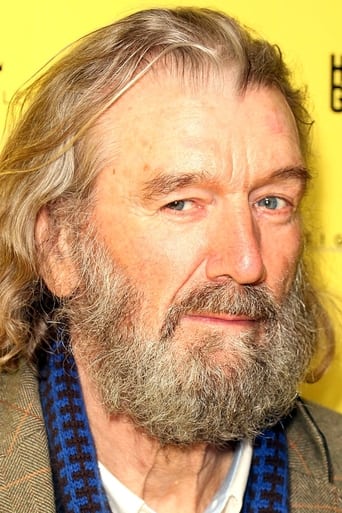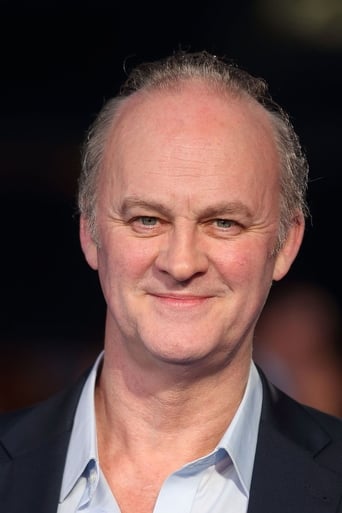Set between the years 1642 and 1660, "The Devil's Whore" charts the progress of the English Civil War through the eyes of the a 17 year old girl, the fictional Angelica Fanshawe.
Reviews
Touches You
Too many fans seem to be blown away
Absolutely amazing
It is a whirlwind of delight --- attractive actors, stunning couture, spectacular sets and outrageous parties.
Excellently entertaining series with some interesting slants on the history but I appreciate that the writers did not set out to create a drama-documentary. Although they did incorporate some historical accuracy, anyone not knowing the real history of the Civil War could/would be very confused by some of the content. The real Thomas Rainsborough did not marry someone called Angelica Fanshawe and he is buried in the now disappeared graveyard of St John's, Wapping.Pity that IMD have posted a picture of John Simm/Sexby's stand-in rather than JS/Sexby himself!!!!!I am also totally stunned that the makers of the series insisted that they could not find suitable filming locations in the UK. I could have suggested any number of suitable locations both privately owned (but the owners have allowed filming) and NT or English Heritage. It seems amazing that with so much Tudor and Jacobean property here, not to mention forests etc that they deemed it necessary to ship cast and crew several thousand miles away to South Africa.
The true story of Angelica Fanshawe, they say it is, but that is secondary to the real interest of this mini-series. Born close to the royal court of Charles I, married within that closed sanctuary, closed especially to what other people may think, and particularly repressive with all those that represented some kind of danger for the crown, she was confronted with a time when truth was the master word of everyone, love the premium of every one and yet the everyday reality was sectarianism and violence directed at all those who differed from you, no matter where you stood.Her story could be reduced to a series of husbands or to a series of man friends or to a series of failures with a successful birth at the end. That's what makes this film striking if not shocking at times with the extreme confrontation of the audience to excessive violence and all other types of executions, corporeal punishments, absolute deprivation of everything, victimization and injustice. And there is not one camp in this full array of differences that is better than the others.But I think this film goes a long way beyond these details and gritty small impressive elements. First of all it is rather clear on the "constitutional debate". The king is of divine nature and has no reason to share his power which is divine and absolute. Parliament, not clearly identified as the representative of the upcoming merchant bourgeoisie whose power was founded on the possession of the merchant fleet, of practically all ships in England, and the control over all sailors, is unable to get out of its small petty meaningless, except for them of course, effete and useless debate on some obtuse religious questions like predestination and the Eucharist, holy sacraments and contact with god, and eventually the right of the people (what people when parliament was elected by a few tens of thousands of propertied people?) to dismiss the king if his connection with the people (what people again.) got discontinued. They were no longer in touch, if they had ever been, with the needs and desires of simple people.The film insists in fact a lot on the Levelers, those people who defended the idea that the land was the property of those who tilled it and that everyone was supposed to share equally with everyone else. They were hunted by the king's men because they were seen as the most dangerous anti-royal enemies since they wanted the end of monarchy and the shift to an equalitarian republic. On the other side they were equally hunted by Cromwell's supporters because Cromwell was not for a republic, was a direct representative of the mercantile bourgeoisie and was against equal sharing, and yet at the same time he was not for a republic and believed deep in himself this country could only be one-handedly governed by a single man, which he resigned to do himself when no compromise could be found with the king.The film is absolutely silent, alas, on the various wars in their details: the two civil wars, and then the Irish war and then the Scottish war and then the war with Spain. The first two were against the king and ended with his bodily shortening. The next one was a bloody massacre based on the idea that Catholics had fallen down to lower than animals since they were able to let their own children starve, if not help them a little bit. The Scottish episode is not represented and the Spanish caper is not even mentioned because it confirmed a radical change that had started under Elizabeth I when she had to mobilize the country against Spain. In both cases the Parliament was the key to that demand because the owners of the ships and the employers of the sailors were all directly in parliament or represented in and by parliament. So Elizabeth gave some powers to parliament over taxation for example, in order to get what she wanted: ships and sailors. Cromwell went even further. He had to summon and convene a parliament he had violently disbanded.Why forget these events that are just coming to the beginning of the end in Ireland, that was solved in Scotland with devolution, and that is the basis of the tremendous move England was able to initiate in the Christian world towards a democratic parliamentary elective system that will take fifty years after the Glorious Revolution (1660) to establish fundamental human rights like Habeas Corpus, the freedom of the press and of publication. That's a shortcoming of great size in the film but that does not prevent us from feeling the happy ending of the Commonwealth in the Glorious Revolution that was to bring a new batch of difficulties and this time the peaceful revocation of the king by parliament in a law that will establish the first constitutional monarchy in the world, a real first step towards the American Revolution and then the French Revolution.After this period no one could say like Charles I: "Give me one instance of a king being dismissed by a parliament!" Charles I was the first in 1649. James II will be the second in 1688. That's really the end of feudalism and its theory of absolute kings by divine appointment.But nevertheless the show is beautifully filmed and grandiosely performed.Dr Jacques COULARDEAU
The English Civil War has often been over looked as a subject for drama, with most films being very inaccurate. The Civil War was a important watershed moment in English history, showing a king can be overthrown, strengthen Parliament, reformed the English army and in the end limits power the power of kings and a tyrant. The Devil's Whore is also a new step for Channel Four, because they don't normally make costume dramas (BBC normally makes them). Channel Four focus has often been documentaries, buying good American programmes, and make comedy series like Peep Show and the Inbetweeners.The Devil's Whore has a similar approach to Rome, focusing on a fictional character who becomes involved in historical events and meets famous historical people.The focus of the programme is on Angelica Fanshawe (Andrea Riseborough), an aristocratic woman from a Catholic background. She has rejected God and sees the Devil because her mother ran off to become a nun. The show starts off with Angelica being a member of the Queen's household just before the English Civil War. But as the Civil War starts and Angelica is forced out King Charles I's camp she allies her herself with political radicals like the Levellers. She also falls in love with soldier and political radical Edward Sexby (John Sims). Angelica also gets very close to honest John Lilburne (Tom Goodman-Hill), a popular political radical, and she acts as his champion to Charles I (Peter Capaldi) and Oliver Cromwell (Dominic West).If you are excepting an action-packed war drama, you will be disappointed because they are few battle scenes. But there is some good sword fights which are more realistic then others in visual media. The strength of the show is the character drama, about Angelica and her struggles. The other main strength is the political background, from Charles I's struggles to Parliament, to Oliver Cromwell becoming no more then a military dictator. The history is actuate for the most part, for example, in English culture some people like to idealise Oliver Cromwell as a great liberator: in real life he took over through a military coup, oppressed dissenting voices and enforced his puritan views on the nation, as well being a butcher to Irish Catholics in Drogheda and Wexford.They is a excellent cast, having talented actors like John Sim, Dominic West, Michael Fassbender and Peter Capaldi (who I was particularly impressed with). Anglea Riseborough is a strong newcomer, who is able to hold her own with all these talented people. She turns her character from a lost young woman to a powerful voice of dissent. John Sim, Dominic West, Tom Goodman-Hill and Maxine Peake are also very good in their roles. The production values were excellent, and with a budget of £7 Million, it was put to good use. The set designer and historical scenes were created really well, showing that towns, cities and even important building like Parliament were not very grant. They was an earthy feel to show. Marc Munden was a good director, able to combine all the elements together. He gets the best out of his actors and does some good scenes. He makes the violence realistic and characters like Sexby were heavily scared.This show was not perfect, they were some problems. Some of the subplots did not lead anywhere, the surreal elements did not work for me, especially because of the realistic sitting, and there were historical inaccuracies, such as the omissions of characters like John Pym and Sir Thomas Fairfax. But the programme does show the complex political background with the different schools of thought during the mid-17th century.It is worthy viewing.
An extremely-engaging and well-acted drama about the period 1642-1660 covering the English Civil War and the subsequent execution of King Charles I and his replacement with England's only republican government. Whilst the history has been simplified with many important characters left-out, this nonetheless sticks to the history quite well. As with HBO's "Rome" fictional characters are invented and their own stories are told alongside those based on historical fact; some historical incidents are also embellished or altered slightly to make them more dramatic.Screenwriter Peter Flannery focuses on the politics of the wars for much of the time and helps scotch the myth deliberately built-up in the aftermath of the 1660 restoration that what happened in England was not a revolution but instead a temporary falling-out leading to an "interregnum". It's true that many of the parliamentary forces were never interested in overthrowing the monarchy but events overtook them and they found themselves embroiled in civil strife as radical forces such as the Levellers and the Diggers threatened to overwhelm not just the monarchy but the Parlimentary landed aristocracy. Whilst England was a republic following the King's execution it was no democracy and the conditions that lead to the betrayal of Cromwell's allies and his own rise of near unassailable-power are simplistically but dramatically detailed.The acting was, in general, of a very high quality with the best performances coming from Peter Capaldi as Charles I and Dominic West as Cromwell. Both managed to portray these deeply-flawed men as more than the monstrous caricatures history can present them as. Tellingly, two of the most emotionally engaging moments in the series for me were King Charles, sentenced to death and stripped of his arrogant autocracy, saying goodbye to his children and Cromwell preparing to be installed as Lord Protector talking to his old comrades in arms who had become his honour guard and reflecting on the fact he had betrayed his own revolution.For me, there were only a few flaws with this series. Edward Saxby, whilst well-played by John Simm, often felt like too much of a "modern" man with his tendency to attack what we can now see as inconsistencies on the Cromwellian side. Similarly, Angelica appeared too much of a modern woman and the scene where she addressed a church and told them there was no heaven and hell (something that would probably have seen her attacked by a mob in the 1650s) was slightly farcical. I also felt that the ending was too optimistic. Yes, Angelica had defeated her personal demons but all that her loved ones had fought for remained in tatters with the restoration simply turning the clock back and I felt that this should have been reflecting in a more sombre conclusion.Overall, though, this is a highly-enjoyable piece of historical drama and an excellent introduction to an important and much-misrepresented period of English history.
Top Streaming Movies























